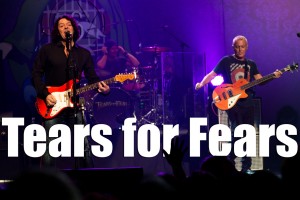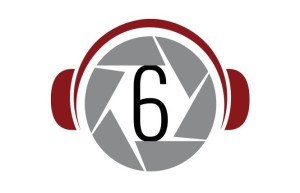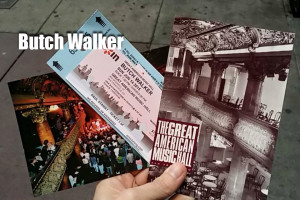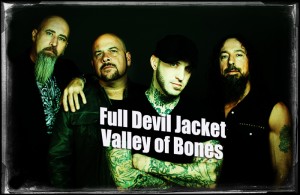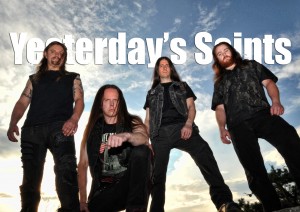Alice In Wonderland
6 min read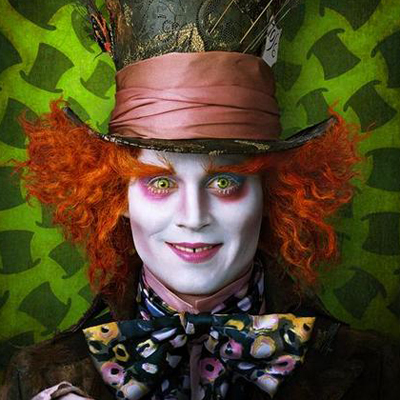
 Disney’s new film, Alice in Wonderland, directed by Tim Burton and starring Johnny Depp, is a fairly new take on the classic fantasy stories by Lewis Carroll, specifically the books Alice’s Adventures in Wonderland and Through the Looking Glass. Actually, the film seems more like a live-action sequel to Disney’s animated version. I won’t explain what I mean by this as it would give away some key plot elements. You’ll just have to see it for yourself, I guess.
Disney’s new film, Alice in Wonderland, directed by Tim Burton and starring Johnny Depp, is a fairly new take on the classic fantasy stories by Lewis Carroll, specifically the books Alice’s Adventures in Wonderland and Through the Looking Glass. Actually, the film seems more like a live-action sequel to Disney’s animated version. I won’t explain what I mean by this as it would give away some key plot elements. You’ll just have to see it for yourself, I guess.
As I said, Disney’s Alice in Wonderland is based (loosely) on Lewis Carroll’s works. Elements (events as well as characters) from both books were used with liberty to create an all-new tale, and some events are totally new inventions of Disney. The film takes place (initially) in late 19th century England and tells the story of 19-year old Alice, a whimsical girl who often thinks about things that girls should not think about and who hates corsets and stockings. At her engagement party, she notices a white rabbit in a dinner jacket. She remarks about the rabbit to her suitor’s mother but doesn’t seem to think it odd that an animal is wearing human clothing. When Alice’s suitor, Hamish, finally proposes to her, she spies the rabbit again and runs off after it, leaving Hamish unanswered in front of all the guests. Naturally Alice falls down the famous rabbit hole, finds a door too small for her to pass through, drinks the potion making her smaller and crosses the threshold into (taa-dahh!) Wonderland. There she encounters Tweedledum and Tweedledee, the White Rabbit, the Blue Caterpillar and the Dormouse, none of who can seem to determine whether Alice is the “real Alice” or not. Alice believes she is dreaming.
Later, Alice finds the Mad Hatter (Johnny Depp), along with the March Hare and the Dormouse at a tea party to which Alice seems to be more than just a little late. The Hatter swears that she is the Alice that they’ve been waiting for, the one who will be able to take up the Vorpal Sword and slay the Jabberwocky on the soon approaching Frabjous Day. In doing so, Alice will end the Red Queen’s (Helena Bonham Carter) reign of terror and restore the White Queen (Anne Hathaway) to the throne. The Hatter is later arrested by the Red Queen’s troops, led by the Knave of Hearts, Stayne, (Crispin Glover) for harboring Alice. Alice escapes being captured but makes her way to the Red Queen’s castle where she is able to infiltrate (for lack of a better word) the Queen’s court. Ultimately, Alice comes to believe that she must do what she can to help the denizens of Wonderland overthrow the Red Queen and return the crown to the White Queen. In immediate terms that means finding the Vorpal Sword hidden in the Red Queen’s castle and returning it to the White Queen so that her “champion” can use it to slay the Jabberwocky.
While Alice in Wonderland might not be everyone’s cup of tea, Disney has accomplished something extraordinary by taking a pair of completely incomprehensible books and turning them into something that is at least consumable by anyone who prefers some semblance of linear logic in their storytelling. Overall I’d say that I generally liked the film. I liked what Tim Burton was attempting to do with it, which was to apply his peculiar vision to this classic work of children’s fiction. In a sense, Alice is a film Burton was meant to direct. The original work by Carroll has been described as “nonsense literature”, and if the types of films that Burton creates were to be given a designation, it might as well be “nonsense film”. It’s right up his dark and twisted little alley, as it were.
Where Burton’s Alice in Wonderland fails for me and perhaps for a lot of other critics is that Burton didn’t go a darker route with this film. Burton is a master of the visually bizarre and, dare I say, macabre. I, and a lot of other people, have been waiting for a more sinister version of Alice that is somewhere in line with the 2000 Electronic Arts computer game, American McGee’s Alice. Last thing I heard, the film rights to that game had been owned by Sarah Michelle Gellar and Freddie Prince, Jr., but I assume they lacked the clout to actually get it made. Burton could have easily made something like that, but, understandably, Disney wants a broad audience and a young audience at that. And Alice in Wonderland is a children’s story after all; it’s understandable that the studio and Burton would forge a film that would appeal, primarily, to children.
That doesn’t mean that Alice in Wonderland won’t appeal to adults as well. There are some things that make this movie worth seeing. Johnny Depp is brilliant as the Mad Hatter. There’s no big surprise there really, is there? I think a lot of critics have become so accustomed to Depp being good in everything that they now take his performances for granted. Depp’s Hatter actually has some depth to it. Not only is the Hatter mad, he seems to be suffering from Post Traumatic Stress and may very well have Multiple Personality Disorder. Watch Depp’s performance closely. His subtleties are a pleasure to behold when he is on the screen. I’ve heard some people say that Helena Bonham Carter steels this picture. Carter is good (and always is), but I felt like Carter was just phoning it in. Depp is pure brilliance and makes mind-blowing choices with every utterance. Roger Ebert is 100 percent on target when he wrote in his Alice review that Depp is a “rare actor who can treat the most bizarre characters with perfect gravity”. That pretty much sums it up. Couldn’t have said it better myself.
As for the other performances, relative newcomer Mia Wasikowska is a darling and capably bestows the acceptable performance that is expected of her. I’m looking forward to seeing more of her in the future. Anne Hathaway is inexplicably the weak link in this film. Her performance is confusing and off-putting. Whatever she was trying to accomplish, she failed miserably. I was elated to see Crispin Glover in this movie. For many, many years, I’ve loved Glover in almost everything he’s done. I’m not entirely sure why. I find his unsettling creepiness appetizing.
Overall, I didn’t really care for the voice acting in Alice, which is unfortunate because there were some really great actors doing some of the animated characters’ voices, such as Alan Rickman as the Blue Caterpillar and Michael Sheen as the White Rabbit. But I think the real problem here was the animation itself. I really felt the CGI in Alice was subpar, not just the characters that were graphically rendered but the environments as well. Everything just looked fake and overly cartoony. I suppose that Avatar really raised my expectations for CGI in films now. Anything less is just not good enough.
Bottom line is that Alice in Wonderland is a good film to take the family to. There are a few intense moments that might scare very young children (under 5, let’s say), but older kids and “kids of all ages” will enjoy it overall. The story is fairly solid and Depp’s performance is worth watching. Unfortunately, the CGI environments and characters nearly ruined the movie for me. I did enjoy the film’s exciting climax, but one extremely goofy moment immediately following it nearly made me want to vomit (but again, the kiddies won’t mind it). Ultimately, Alice in Wonderland will do well in the theaters, and, if money is a factor, it will probably sire a sequel. I can only hope that Disney will up the ante in the next one, orient it a bit more for adults and give a little more attention to the CGI elements. Otherwise, I hope they don’t bother.

